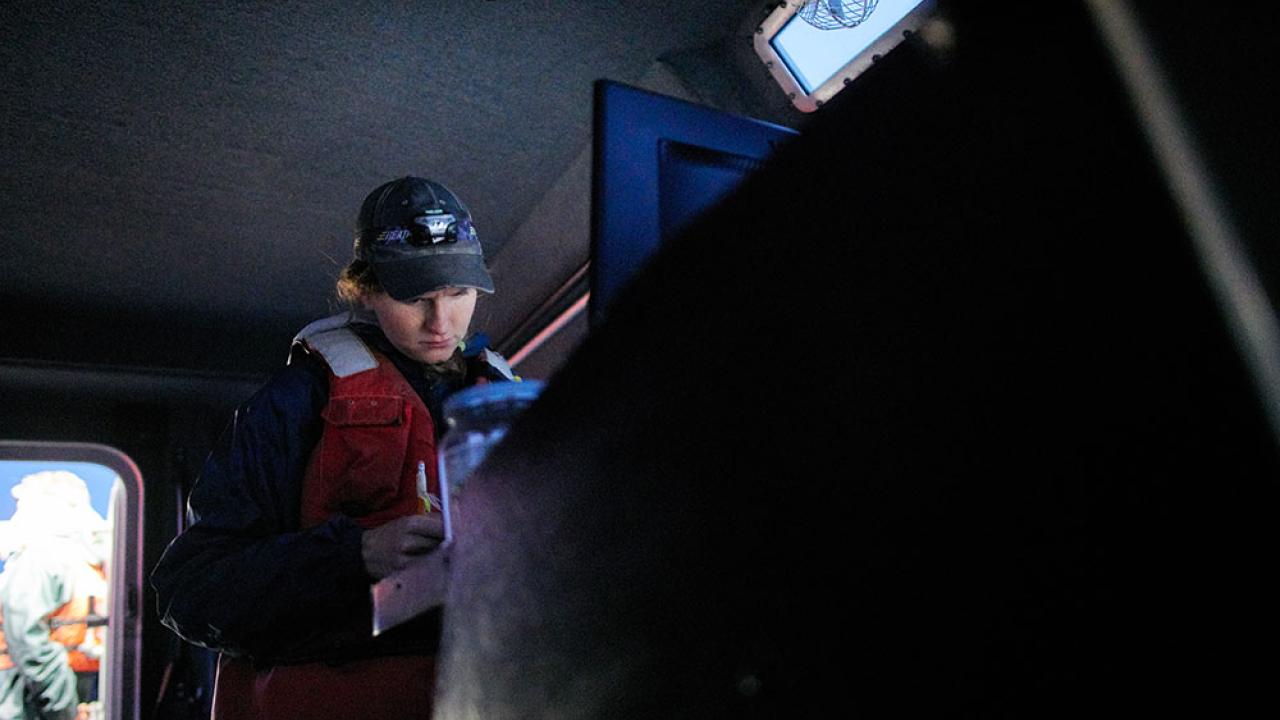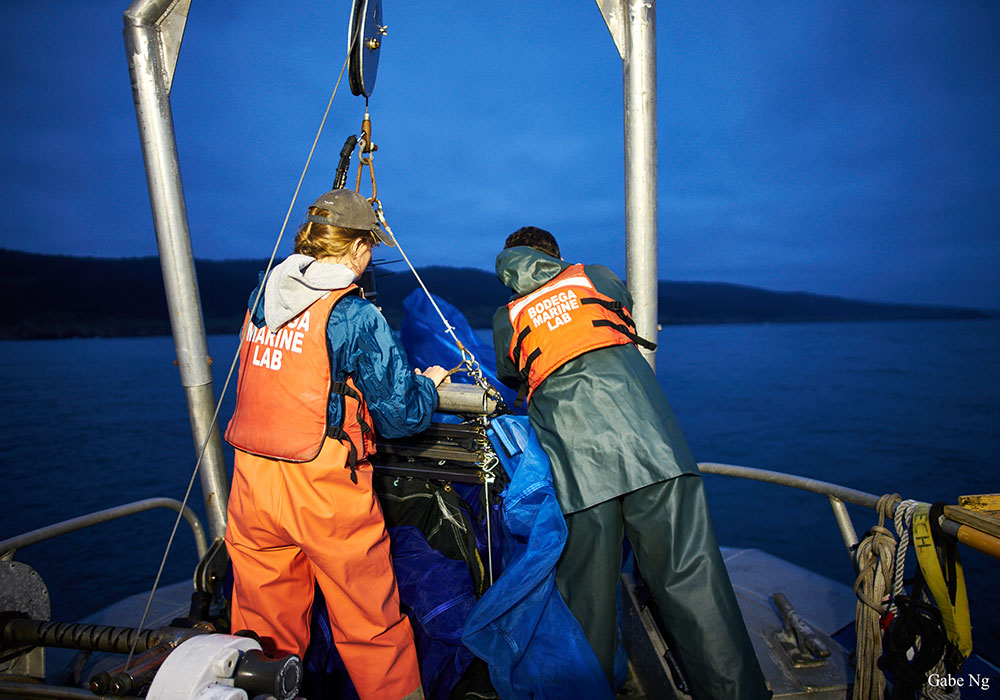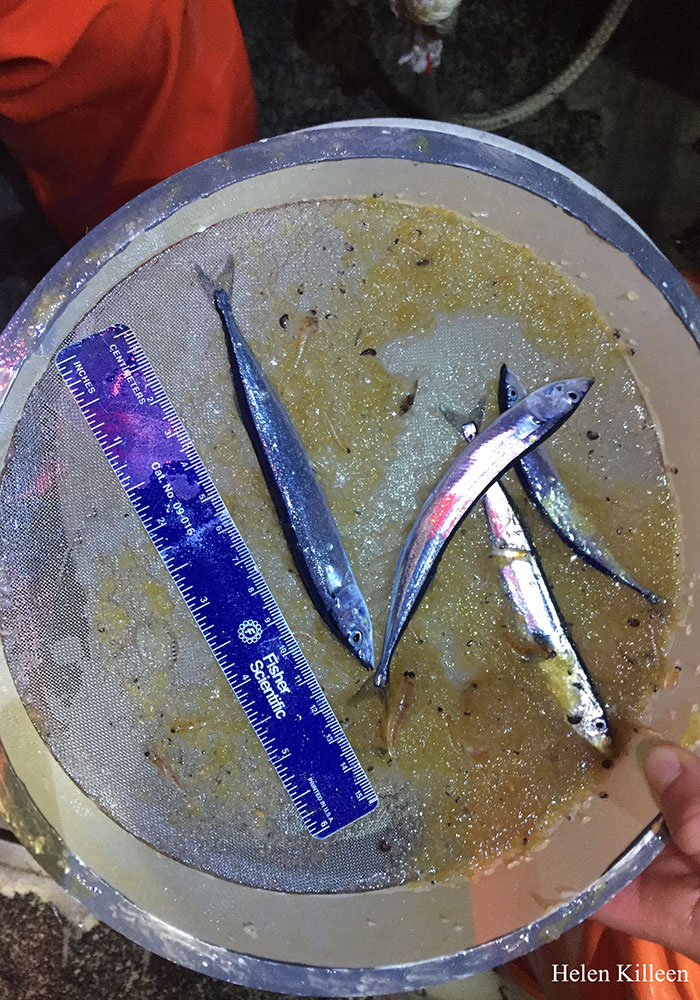
Into the Deep End
The rest of the crew and I have various nicknames for the gear we use to collect fish plankton from the depths, and none of them are particularly complimentary. Two months ago I found myself securing our nets for another deployment one last time. It was around 2am and I was thrilled that I would not have to scramble over nets and lines and hitch up the four heavy nets for another round of fishing. This was the last deployment of the last station of the last cruise for the year. Even with the rocking of the boat and the choppy seas, it only took me about five minutes to get things squared away. What a relief.
 Once I stepped away from the rig, ready to deploy the nets one more time 25 miles from shore, it flashed through my mind that doing this used to be much more difficult. On the very first cruise, a year before, it took three of us upwards of twenty minutes to get the stupid nets to hang correctly. To make things worse I was so seasick I could hardly keep myself upright for more than a few minutes at a time, let alone manage a crew much more seasoned than myself to conduct a complicated scientific sampling protocol. When we docked at the end of those first few trips, I felt sure that I was not the right person for the job and was sorely aware of my inadequacies as a scientist and leader.
Once I stepped away from the rig, ready to deploy the nets one more time 25 miles from shore, it flashed through my mind that doing this used to be much more difficult. On the very first cruise, a year before, it took three of us upwards of twenty minutes to get the stupid nets to hang correctly. To make things worse I was so seasick I could hardly keep myself upright for more than a few minutes at a time, let alone manage a crew much more seasoned than myself to conduct a complicated scientific sampling protocol. When we docked at the end of those first few trips, I felt sure that I was not the right person for the job and was sorely aware of my inadequacies as a scientist and leader.
What helped me through those first few trips was recalling moments when I’d felt similarly unprepared and inadequate. After college, I took a position as a high school teacher. The first few months were similar to what many first-year teachers experience: a total mess. I couldn’t manage the class, I struggled to craft lessons, and stay afloat in a sea of paperwork. However, as the months wore on, I stopped making the same small (and sometimes big) mistakes over and over again. Prior failures turned into valuable experience that gave me the confidence to make and carry out my decisions. I desperately hoped that the same would happen if I could stick it out through just a few more night cruises.
 The only way I was going to make it though was if I stopped sweating every little mistake. If I stopped feeling like a failure every time I didn’t set the computer up right, or didn’t hit the right target depth for a sample, or made the wrong call on the weather. So I decided that I would need to make a conscious, painful effort to let the mistakes go. I would focus on lessons learned, and take time to reflect on what I was doing right.
The only way I was going to make it though was if I stopped sweating every little mistake. If I stopped feeling like a failure every time I didn’t set the computer up right, or didn’t hit the right target depth for a sample, or made the wrong call on the weather. So I decided that I would need to make a conscious, painful effort to let the mistakes go. I would focus on lessons learned, and take time to reflect on what I was doing right.
There are many elements to success in graduate school: a network of peers, strong mentors, and an inclusive academic community. But I am learning that no one escapes without a healthy dose of failure. And it is in part how we choose to respond to these failures that determines whether we are able to overcome obstacles and become better scientists. While I’m glad I won't have to clamber around a boat in the middle of the tumultuous nighttime sea for a while, I’m grateful for the opportunities to fail that doing so over the last two years has given me.
